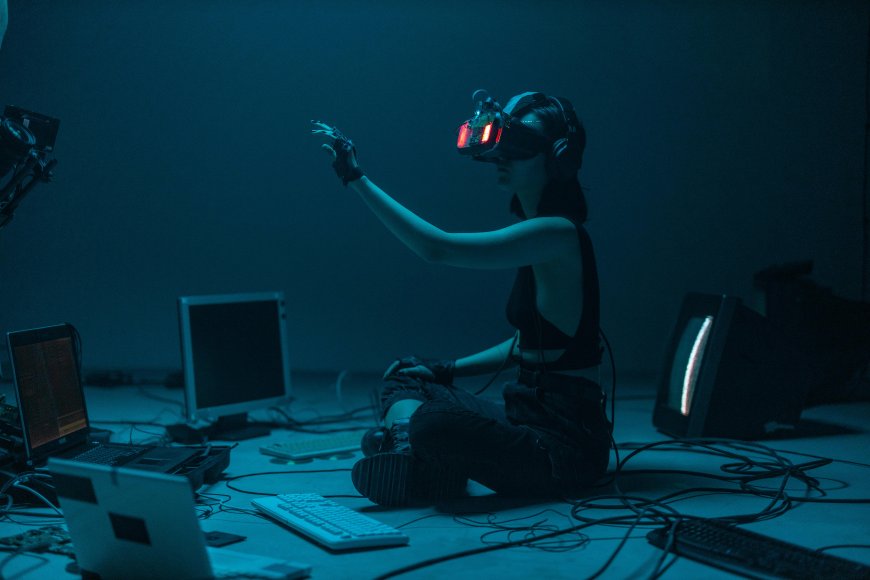AI-Powered Mental Health: How Artificial Intelligence is Transforming Therapy
Self-love isnAI is revolutionizing mental health care in 2025 by providing accessible, personalized, and stigma-free therapy options.’t just a buzzword — it’s a mental health essential in 2025. Learn how to build self-worth, set boundaries, and thrive emotionally.

Artificial Intelligence is transforming mental health care with tools that offer personalized, scalable, and accessible support. AI-powered chatbots and virtual therapists provide cognitive behavioral therapy (CBT), mood tracking, and emotional support anytime.
- Personalized and Scalable Mental Health Support:
AI-powered platforms are designed to offer personalized therapy experiences that adapt to each user’s unique emotional state and mental health needs. By collecting data from interactions, AI tailors interventions and suggestions in real-time, making therapy more effective and scalable to millions of users worldwide. -
AI Chatbots and Virtual Therapists:
Advanced AI chatbots simulate human conversation using natural language processing (NLP), enabling users to engage in therapeutic dialogues anytime, without waiting for appointments. These virtual therapists guide users through evidence-based therapies like Cognitive Behavioral Therapy (CBT), helping them identify negative thought patterns and develop coping strategies. -
Emotion Recognition and Sentiment Analysis:
Using sophisticated algorithms, AI can analyze voice tone, facial expressions (when video-enabled), and text sentiment to understand emotional nuances. This allows the system to respond empathetically and adjust therapy techniques dynamically, enhancing user engagement and trust. -
Early Detection and Intervention:
By monitoring user behavior and communication patterns over time, AI can detect early warning signs of depression, anxiety, or other mental health issues even before users fully recognize them. This early detection can prompt timely interventions, referrals to human therapists, or emergency support if necessary. -
Integration with Wearable Devices and Biometrics:
AI mental health tools are increasingly integrated with wearable technologies like smartwatches and fitness trackers. These devices collect physiological data such as heart rate variability, sleep patterns, and stress markers, allowing AI to correlate physical symptoms with mental health states. For example, a sudden spike in heart rate combined with negative mood reports might trigger relaxation exercises or mindfulness prompts. -
Reducing Barriers to Mental Health Care:
Traditional mental health services face challenges like high costs, stigma, long wait times, and limited accessibility in rural or underserved areas. AI-powered platforms offer confidential, affordable, and 24/7 access to mental health support, dramatically lowering these barriers and encouraging more people to seek help. -
Support Between Therapy Sessions:
AI tools are valuable companions for users between sessions with human therapists. They provide mood tracking, daily check-ins, journaling prompts, and coping skill reinforcement, ensuring continuous support and improved therapy outcomes. -
Ethical Considerations and Data Privacy:
As AI handles sensitive mental health data, ensuring user privacy and ethical use is critical. Developers are implementing strong data encryption, anonymization techniques, and transparent data policies to protect users. Furthermore, AI systems are programmed to recognize their limitations and recommend professional human care when necessary. -
Advances in AI Empathy and Responsiveness:
Researchers are continually improving AI’s ability to recognize subtle emotional cues and respond with warmth and understanding. These advances make virtual therapists feel less robotic and more like genuine sources of support, increasing user satisfaction and trust.
Conclusion:
AI-powered mental health tools represent a groundbreaking shift in how we approach emotional and psychological well-being. By making therapy more accessible, affordable, and personalized, AI is helping to break down long-standing barriers such as stigma and limited availability of mental health professionals. While it doesn’t replace the invaluable human connection offered by traditional therapists, AI serves as a powerful complement — providing support whenever and wherever it’s needed. As technology continues to evolve, these intelligent systems will become even more empathetic, ethical, and effective, promising a future where mental health care is truly within everyone’s reach.







